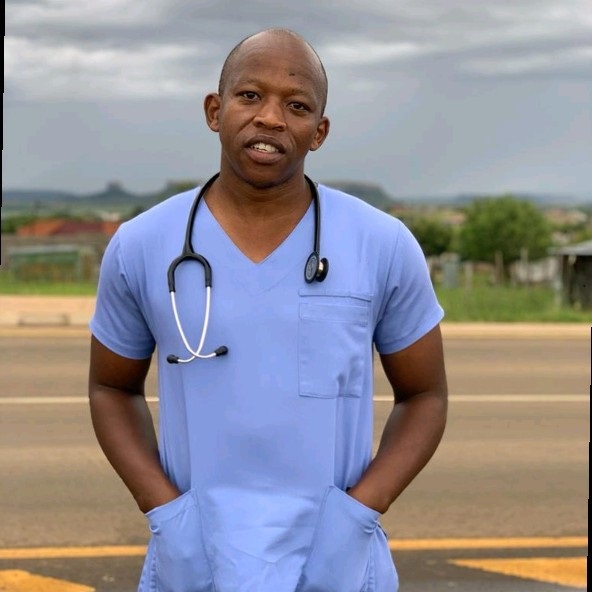A memo from Dr. ‘Makhoase Ranyali, Director General of Health Services, has sparked outrage among medical professionals, who warn that the Ministry of Health’s strict policy on post-call rest endangers patient safety.
The memo, dated April 25, 2025, titled “Unauthorised Absence from Duty,” targets medical officers taking rest after demanding on-call shifts.
“It has come to our attention that some medical officers are engaging in unauthorized absenteeism from duty under the notion of post-call rest. We would like to remind all medical officers that such absence is not permitted unless explicitly approved,” Ranyali wrote.
She stated that while the demands and the nature of the on-call duties, especially during high-volume shifts are understandable, the policy of the Ministry of Health and Public Service does not recognise post call as a valid reason for absence from regular duty.
She emphasised that every medical officer is expected to report to duty as scheduled regardless of their on-call status the previous night.
“However, in the interest of fairness and wellbeing, a brief period of rest not exceeding three hours maybe considered only in exceptional circumstances such as completion of more than five caesarean sections during the on-call shift, management of over 50 patient consultations during the call period, and other reasons of similar magnitude as determined by the supervisor,” she said.
This concession, according to Ranyali, is not automatic and must be discussed and approved by the immediate supervisor or unit head prior to leaving a post. She told the doctors that unauthorised absence without communication and approval will be treated as a disciplinary matter.
“You are encouraged to uphold the highest standards of professionalism and commitment to patient care. Your cooperation in this matter is both expected and appreciated,” she concluded.
The policy has sparked outrage among doctors, who argue that the ban disregards the demands of emergency and overnight care, potentially leading to exhausted clinicians making critical decisions under dangerous levels of fatigue.
Doctors who spoke to this publication on condition of anonymity indicated that medical associations worldwide, including the World Health Organisation (WHO), have long warned against excessive working hours for healthcare workers.
“Fatigue in clinical settings has been linked to increased risk of medical errors, delayed decision-making, and poor patient outcomes,” they said.
They also pointed to the ‘lack of consultation’ with frontline medical staff and hospital administrators before the memo was issued.
They described the communication as “disciplinary in tone,” suggesting it frames rest as misconduct rather than acknowledging the physiological limits of human endurance.
The doctors said they were demanding that the ministry immediately retract the memo and engage in open dialogue with medical practitioners to develop a policy that balances service delivery with clinician safety.
“No health system can function if its workers are collapsing on the job,” they said. “We must protect our patients by protecting those who care for them.”
Commenting on the memo, Dr. Mojakisane Ramafikeng warned of the potentially dire consequences for patients.
“This means doctors will be very tired, and in that state, many things could go wrong, starting with their thinking capacity leading to misdiagnosing patients,” Dr. Ramafikeng explained.
“We all know that a tired mind can make mistakes, some of which could be very big and life-threatening,” he said.
Dr. Ramafikeng further highlighted the apparent disconnect between the Ministry’s expectations and the compensation provided to doctors.
“No one is supposed to be paid M600 for five calls working 36 hours, and the Ministry’s only concern is to keep mounting pressure on doctors,” he stated, emphasising the potential for this policy to have a huge impact on the lives of Basotho patients.
Clarification Notice
In the print edition of Newsday dated 2 May 2025, we erroneously stated that Dr. Mojakisane Ramafikeng was speaking in his capacity as the President of the Lesotho Medical Association (LMA). We wish to clarify that Dr. Ramafikeng was expressing his personal professional opinion as a medical officer and is no longer the LMA president.
We sincerely apologise to Dr. Ramafikeng, the LMA, and our readers for this oversight. Newsday remains committed to accurate reporting and regrets any inconvenience caused.
Summary
- She stated that while the demands and the nature of the on-call duties, especially during high-volume shifts are understandable, the policy of the Ministry of Health and Public Service does not recognise post call as a valid reason for absence from regular duty.
- “However, in the interest of fairness and wellbeing, a brief period of rest not exceeding three hours maybe considered only in exceptional circumstances such as completion of more than five caesarean sections during the on-call shift, management of over 50 patient consultations during the call period, and other reasons of similar magnitude as determined by the supervisor,” she said.
- “No one is supposed to be paid M600 for five calls working 36 hours, and the Ministry’s only concern is to keep mounting pressure on doctors,” he stated, emphasising the potential for this policy to have a huge impact on the lives of Basotho patients.

Ntsoaki Motaung is an award-winning health journalist from Lesotho, specializing in community health stories with a focus on sexual and reproductive health and rights, as well as HIV. She has contributed to platforms like “Be in the KNOW,” highlighting issues such as the exclusion of people with disabilities from HIV prevention efforts in Lesotho.
In addition to her journalism, Ntsoaki serves as the Country Coordinator for the Regional Media Action Plan Support Network (REMAPSEN). She is also a 2023 CPHIA Journalism Fellow.










